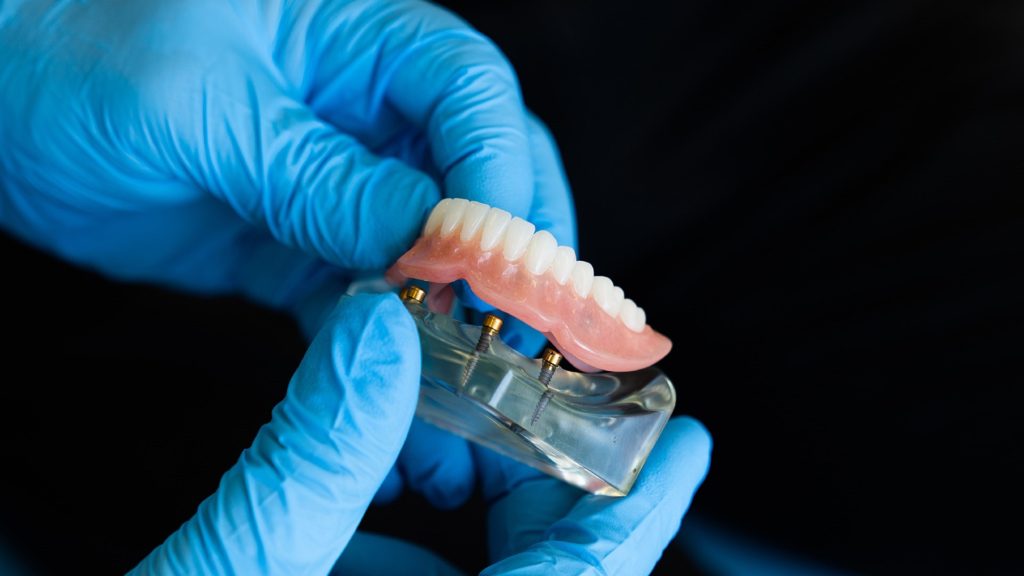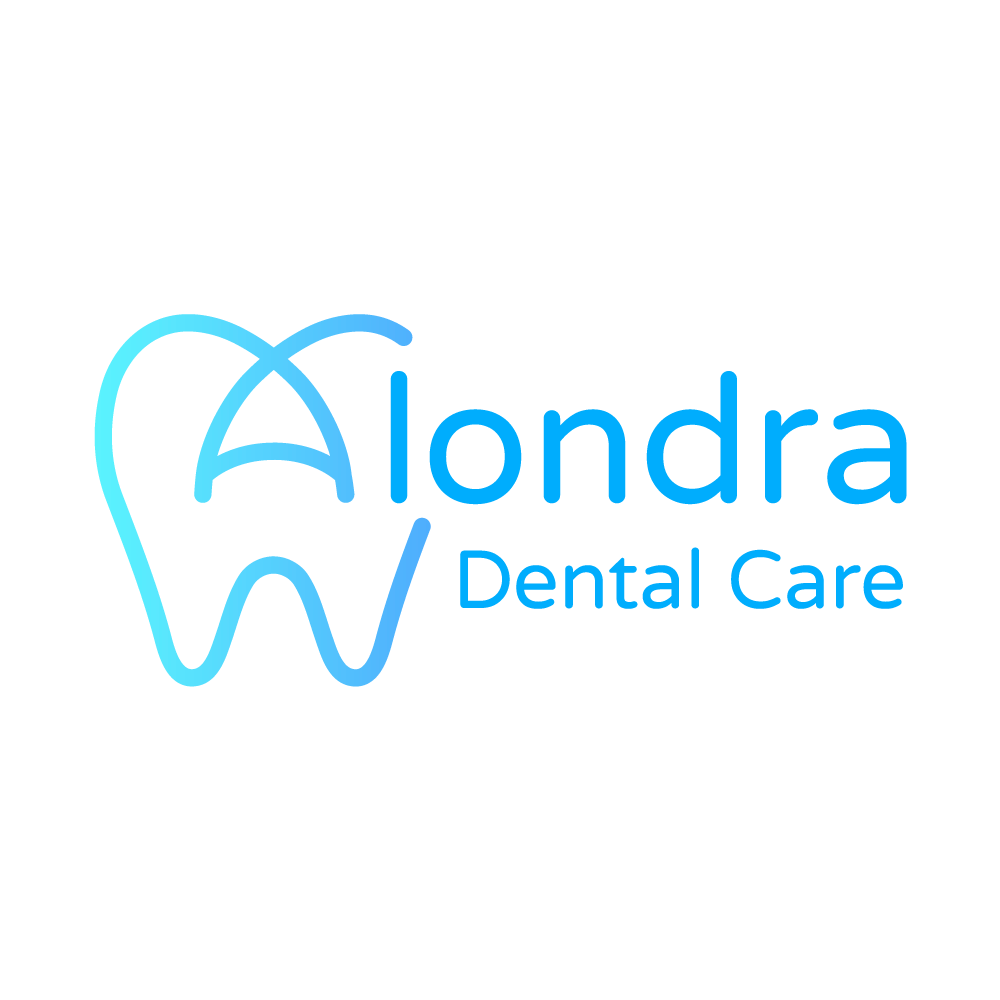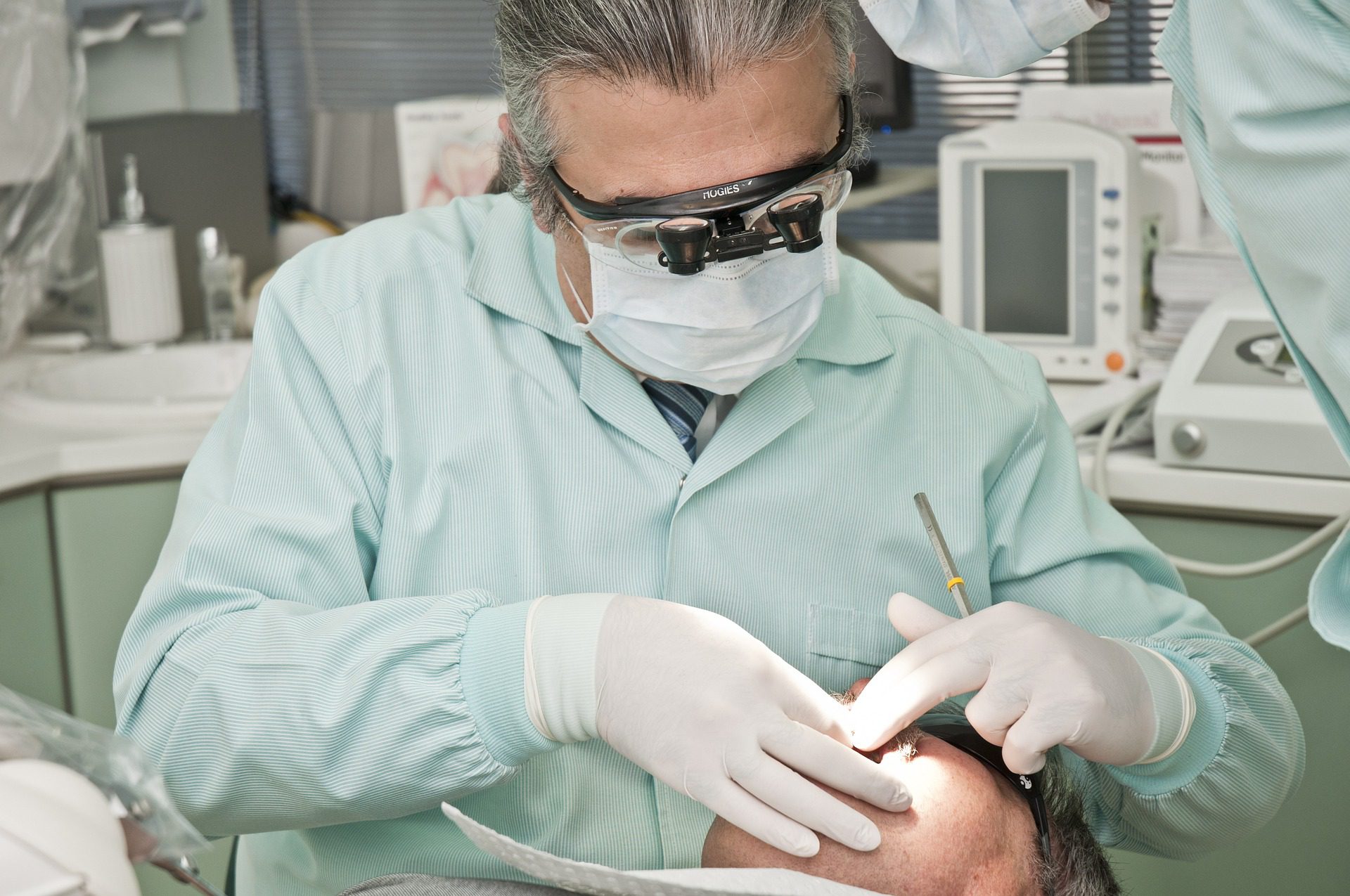A medical condition or an unforeseen accident has done a number on your teeth—and your smile. Now, eating is a pain, literally, and the thought of smiling for your next holiday get-together photo makes you not want to get together at all.
Fortunately, dentures can help.
Thanks to dental material and technological advances, dentures today are less noticeable and more comfortable than they were in the past. You may want to take advantage of full or partial implant dentures, which offer even more benefits than traditional dentures. At Alondra Dental Care in Norwalk, CA, we offer a range of denture options to best accommodate our patients’ individual needs.
Here’s everything you need to know about the difference between partial and full dentures, as well as what implant dentures have to offer.
Partial Dentures, Including Partial Implant Dentures
When you are missing only some of your teeth, there’s no need for full dentures. A partial denture fills gaps left by missing teeth. This type of denture attaches to an acrylic base and clasps to nearby teeth to remain securely in place.
A major benefit of partial dentures is that they do not require the extraction of any teeth before they are fitted. In addition, these dentures are ready for use the moment they are produced.
Partial Implant Dentures
Implant dentures are dentures that are secured using dental implants, or titanium screws that are inserted into your jaw bone. The screws behave like natural tooth roots by holding your dentures in place.
Partial implant dentures offer the benefit of providing a greater biting force than non-implant-supported dentures. When your partial denture is anchored using dental implants, this will triple your biting force compared with traditional dentures. This makes it easier to consume chewy, tough, and crunchy foods. These dentures also won’t move around during eating.
Partial implant dentures typically require four or more implants if used for the upper jaw. For lower-jaw dentures, patients typically need two implants.

Full Dentures, Including Full Implant Dentures
Full dentures, also called complete dentures, are like partial dentures in that they are removable. However, the main difference between partial and full dentures is that rather than being used to replace a few missing teeth, full dentures replace all or most of a person’s teeth.
If your dentist recommends full dentures for you, any teeth remaining in your mouth will need to be extracted to make room for your dentures. Once this is done, the dentist will make a mold of the gums. Then, a lab can use the mold to craft custom dentures.
Because your gum tissue’s healing process may last up to 12 weeks following your dental extractions, you may benefit from choosing immediate dentures first. Immediate dentures can easily be fitted after the extractions; then, your dentist will simply adjust them as needed as your mouth and gums heal. Afterward, you can take advantage of conventional dentures. These dentures are less invasive and more comfortable when compared with immediate dentures.
Full Implant Dentures
Full implant dentures help you to experience the functionality and security of natural teeth by allowing you to affix dentures to your jawbone throughout the entire mouth. These dentures, like partial implant dentures, can help to improve your speaking ability because they are not as easily displaced as traditional dentures. That means no more slurring speech or mumbling as you struggle to keep your dentures in the right position. In addition, you no longer have to worry about using foul-tasting, messy, and sticky dental adhesives to keep the appliance in place.

Experience the Benefits of Full or Partial Implant Dentures for Yourself at Alondra Dental Care
At Alondra Dental Care, we are a proud provider of both full and partial implant dentures, along with traditional dentures in the Norwalk, CA, area. We would be glad to further explain to you the difference between partial and full dentures as well as the difference between traditional dentures and implant-supported dentures. Then, we’ll help you to determine the best treatment option for your needs.
Give us a call to learn more about our treatment options and schedule an appointment today!




